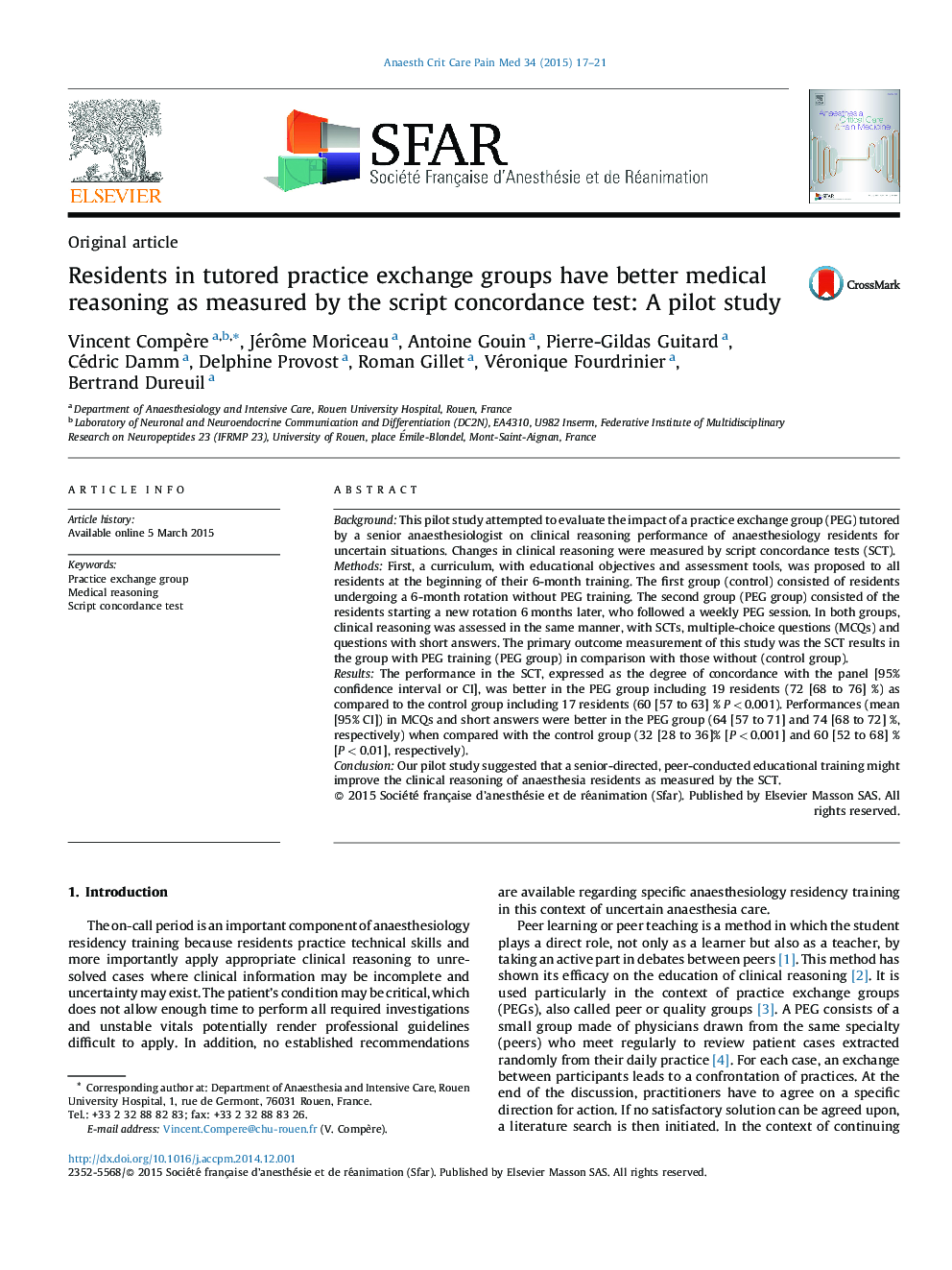| Article ID | Journal | Published Year | Pages | File Type |
|---|---|---|---|---|
| 2741958 | Anaesthesia Critical Care & Pain Medicine | 2015 | 5 Pages |
BackgroundThis pilot study attempted to evaluate the impact of a practice exchange group (PEG) tutored by a senior anaesthesiologist on clinical reasoning performance of anaesthesiology residents for uncertain situations. Changes in clinical reasoning were measured by script concordance tests (SCT).MethodsFirst, a curriculum, with educational objectives and assessment tools, was proposed to all residents at the beginning of their 6-month training. The first group (control) consisted of residents undergoing a 6-month rotation without PEG training. The second group (PEG group) consisted of the residents starting a new rotation 6 months later, who followed a weekly PEG session. In both groups, clinical reasoning was assessed in the same manner, with SCTs, multiple-choice questions (MCQs) and questions with short answers. The primary outcome measurement of this study was the SCT results in the group with PEG training (PEG group) in comparison with those without (control group).ResultsThe performance in the SCT, expressed as the degree of concordance with the panel [95% confidence interval or CI], was better in the PEG group including 19 residents (72 [68 to 76] %) as compared to the control group including 17 residents (60 [57 to 63] % P < 0.001). Performances (mean [95% CI]) in MCQs and short answers were better in the PEG group (64 [57 to 71] and 74 [68 to 72] %, respectively) when compared with the control group (32 [28 to 36]% [P < 0.001] and 60 [52 to 68] % [P < 0.01], respectively).ConclusionOur pilot study suggested that a senior-directed, peer-conducted educational training might improve the clinical reasoning of anaesthesia residents as measured by the SCT.
